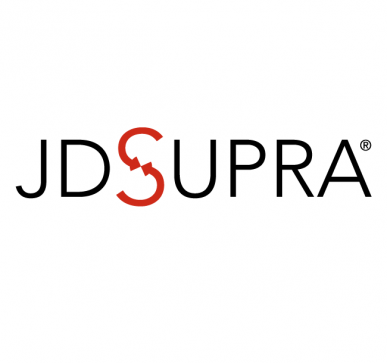Bitcoins and the IRS: Reporting and Storing – JD Supra.
Possession of virtual currency, also known as cryptocurrency, is legal in the U.S. as well as many other parts of the world. The most well-known form of virtual currency is Bitcoin. There are other virtual currencies that function in the same manner as Bitcoin and are known as alternative coins or alt coins (Litecoin, Peercoin, Feathercoin and Ethereum).
A Bitcoin is a “peer to peer” virtual currency; meaning that here are no intermediaries. No middlemen or a central bank authority is required for a transaction to occur. It is strictly an electronic form of payment without “physical attributes” – no coins or dollars – and is not yet legal tender in any jurisdiction. Bitcoins are self-contained and can be used to buy goods or services or just held for value appreciation. They have in fact appreciated in market value; from $13 per Bitcoin in 2013, to over $13,000 U.S.D. as of December, 2017.
Due to this unprecedented market value increase, the IRS is paying close attention to virtual currency and is scrutinizing virtual currency transactions.
Bitcoins are traded through an on-line exchange and may be stored in “a digital currency on-line wallet”. Bitcoins seamlessly move from one “on-line wallet” to another. Each transaction is recorded in a public ledger called a block chain. Bitcoins can also be stored “offline”. This means that they are kept under “cold storage”, or in other words, not present on a web server (i.e., in a USB driver) – the equivalent of maintaining gold coins in a bank safety deposit box.
Certain on line merchants are currently accepting Bitcoin as a form of payment for good and services. Other industries like travel, lodging, casinos and services (PwC) are also accepting Bitcoin. Some of the benefits of using virtual currency seen by consumers or investors are:
- It is global
- Transactions can’t be reversed
- Fees are extremely low
- There are no statements and no identifying information so, it is private
- Cryptographic nature makes the transactions more secure, less identity theft
- Transactions are open and visible
While virtual currencies are currently independent from most government regulation, they are not exempt from US tax obligations and US tax reporting requirements. In the U.S., for Federal tax purposes, virtual currency is treated as property. Virtual currency is not treated as “currency” that could generate foreign currency gain or loss for U.S. federal tax purposes. The same general tax principles that apply to “property transactions” apply to transactions using virtual currency such as Bitcoin. Meaning, if you buy Bitcoins and later sell them; you either have a reportable gain or a loss on the transaction. According to the IRS, the general tax principles that apply to “property” transactions are:
- Wages paid to employees using virtual currency are taxable to the employee, must be reported by an employer on a Form W-2, and are subject to federal income tax withholding and payroll taxes.
- Payments using virtual currency made to independent contractors and other service providers are taxable and self-employment tax rules generally apply. Payers must issue Form 1099.
- The character of gain or loss from the sale or exchange of virtual currency depends on whether the virtual currency is a capital asset in the hands of the Taxpayer.
- A payment made using virtual currency is subject to information reporting to the same extent as any other payment made with property.
In spite of the IRS general tax principles that apply to Bitcoin, and a subsequent report issued by the Treasury Inspector General For Tax Administration (TIGTA) on September 21, 2016, “As the Use of Virtual Currencies in Taxable Transactions Becomes More Common, Additional Actions are needed to Ensure Taxpayer Compliance”, there are a lot of gray area and ambiguity around virtual currency.
In August 2016, Coinbase, Inc., a US headquartered Bitcoin exchange, was served with an IRS “John Doe” summons requiring it to turn over the tax identifying information of 14,000 accounts. The reported sentiment of IRS is that it is not receiving required reporting around the skyrocketing action of Bitcoin because IRS believes that the majority of virtual currency transactions are NOT reported. According to the Summons, there is a “reporting gap between the number of virtual currency users Coinbase claims to have had during the summons period and the U.S. bitcoin users reporting gains or losses to the IRS during the summoned years”. The Court ordered Coinbase to produce the following information for accounts with at least the equivalent of $20,000 in any one transaction type (buy, sell, send, or receive) in any one year during the 2013 to 2015 period:
(1) the taxpayer ID number,
(2) name,
(3) birth date,
(3) address,
(4) records of account activity including transaction logs or other records identifying the date, amount, and type of transaction (purchase/sale/exchange), the post transaction balance, and the names of counterparties to the transaction, and
(5) all periodic statements of account or invoices (or the equivalent)
It seems that there is also the potential for additional reporting based on the way that a Bitcoin is “stored”. If a Bitcoin user is storing Bitcoins in a foreign financial account (this would be a virtual wallet hosted overseas), there is a possibility for FBAR and FATCA reporting.
Don’t be a victim of your own making. When Taxpayers assume that virtual currency transactions are exempt from Government regulation and reporting, they are misleading themselves. IRS is determined to audit the virtual currency sector. It has proven this with its Coinbase summons. If you are a Taxpayer with reportable gains or withholding taxes, consult with your tax specialist, even if you have not received a Form 1099. The burden is on the Taxpayer to report voluntarily and pay taxes on gains earned.
https://www.jdsupra.com/legalnews/bitcoins-and-the-irs-reporting-and-32557/





